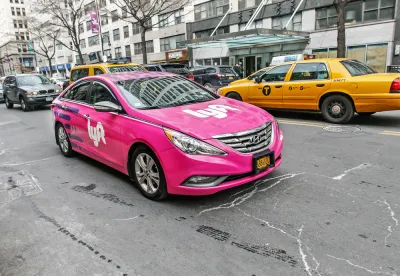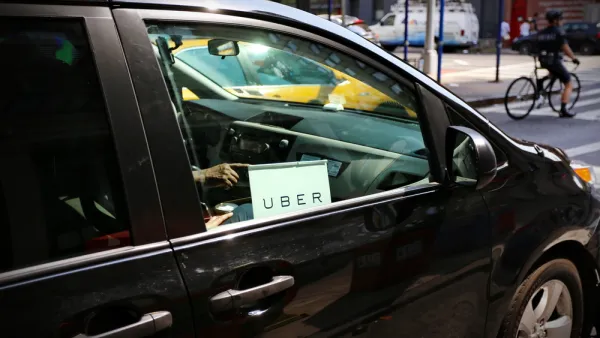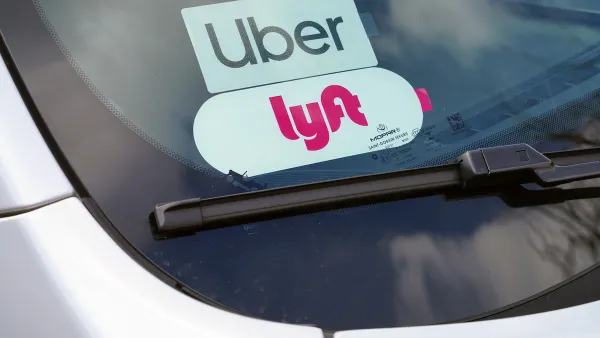A state bill would force gig companies to treat workers fairly and would stanch the flow of subsidies that keep customer costs artificially low.

The gig economy exploits workers, and California lawmakers need to fix a broken system, argues Zakhary Mallett. Assembly Bill 5 would limit the ability of companies such as Uber and Lyft to classify workers as independent contractors and would provide worker protections.
Mallett worked as an Uber driver, and he makes the case that riders are not paying the full cost of their trips. Instead, the rides are subsidized by underpaying workers and depending on venture capital. For example, he explains that driver incentives to work during certain times and in certain locations result in an excess of drivers, longer wait times, and costs that are not passed on to customers.
"Take, for instance, a 32-minute trip I completed from South of Market to San Rafael: I waited 24 minutes to get that trip after my last drop-off and took in $66.98, while the rider paid just $38.71 — meaning Uber lost $28.27 on that trip," he writes. Mallett also discusses the additional societal costs from drivers flooding city streets, including traffic congestion and decreased available parking.
"Similarly, the companies have circumvented antitrust principles by using venture capital to subsidize their services at the expense of taxis, rental car companies, private parking companies, public transit and more. This isn’t innovation in urban transport and deliveries; it’s innovation in ripping off people, cities and industries," he notes.
FULL STORY: The distorted economics of ride hailing must be fixed by California law

Analysis: Cybertruck Fatality Rate Far Exceeds That of Ford Pinto
The Tesla Cybertruck was recalled seven times last year.

National Parks Layoffs Will Cause Communities to Lose Billions
Thousands of essential park workers were laid off this week, just before the busy spring break season.

Retro-silient?: America’s First “Eco-burb,” The Woodlands Turns 50
A master-planned community north of Houston offers lessons on green infrastructure and resilient design, but falls short of its founder’s lofty affordability and walkability goals.

Test News Post 1
This is a summary

Analysis: Cybertruck Fatality Rate Far Exceeds That of Ford Pinto
The Tesla Cybertruck was recalled seven times last year.

Test News Headline 46
Test for the image on the front page.
Urban Design for Planners 1: Software Tools
This six-course series explores essential urban design concepts using open source software and equips planners with the tools they need to participate fully in the urban design process.
Planning for Universal Design
Learn the tools for implementing Universal Design in planning regulations.
EMC Planning Group, Inc.
Planetizen
Planetizen
Mpact (formerly Rail~Volution)
Great Falls Development Authority, Inc.
HUDs Office of Policy Development and Research
NYU Wagner Graduate School of Public Service




























